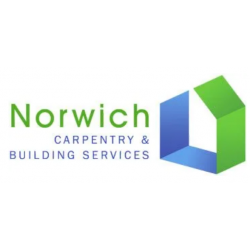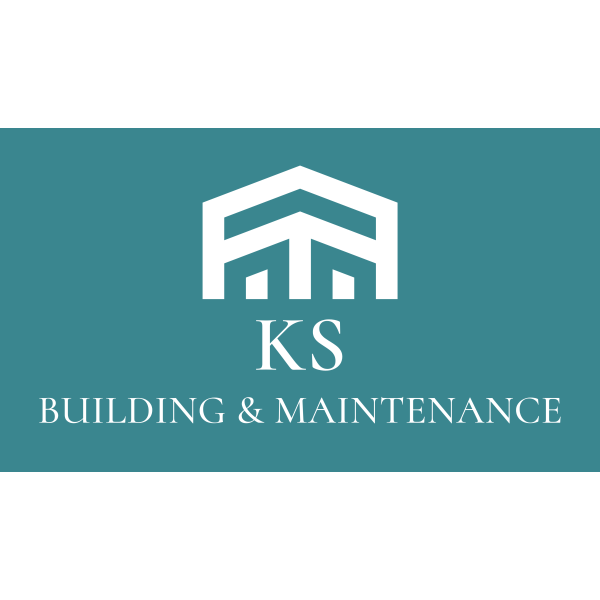Property Refurbishment in Great Yarmouth
Filter your search
Post your job FREE and let trades come to you
Save time by filling out our simple job post form today and your job will be sent to trades in your area so you can sit back, relax and wait for available trades to contact you.
Post your job FREESearch Property Refurbishment in places nearby
Understanding Property Refurbishment in Great Yarmouth
Property refurbishment in Great Yarmouth is a fascinating journey that combines the charm of historical architecture with modern living standards. This coastal town, known for its rich maritime history, offers a unique blend of opportunities for property owners and investors alike. Whether you're looking to restore a Victorian terrace or modernise a seaside bungalow, understanding the nuances of property refurbishment in this area is crucial.
The Appeal of Great Yarmouth
Great Yarmouth, a vibrant town on the Norfolk coast, is renowned for its sandy beaches, historic landmarks, and bustling market. Its appeal lies not only in its picturesque setting but also in its potential for property investment. The town's rich history is reflected in its diverse architectural styles, from Georgian and Victorian buildings to contemporary homes. This diversity offers a wide range of refurbishment opportunities for those looking to invest in property.
Historical Significance
The historical significance of Great Yarmouth cannot be overstated. With roots dating back to Roman times, the town has evolved through the centuries, leaving behind a tapestry of architectural styles. Many properties in the area are listed buildings, which means they are protected due to their historical and architectural importance. Refurbishing such properties requires a delicate balance of preserving historical features while incorporating modern amenities.
Modern Living in a Historic Setting
While Great Yarmouth is steeped in history, it also offers modern amenities that cater to contemporary lifestyles. The town boasts excellent transport links, schools, healthcare facilities, and leisure activities, making it an attractive place to live. Refurbishing a property here allows homeowners to enjoy the best of both worlds – the charm of a historic setting with the convenience of modern living.
Key Considerations for Property Refurbishment
Embarking on a property refurbishment project in Great Yarmouth requires careful planning and consideration. From understanding local regulations to selecting the right materials, several factors can influence the success of your refurbishment project.
Planning Permission and Regulations
Before starting any refurbishment project, it's essential to understand the local planning regulations. Great Yarmouth Borough Council oversees planning applications and building regulations in the area. If your property is a listed building or located in a conservation area, additional permissions may be required. Consulting with local authorities and obtaining the necessary approvals is a crucial step in the refurbishment process.
Choosing the Right Materials
The choice of materials can significantly impact the outcome of your refurbishment project. For historical properties, it's important to use materials that are in keeping with the original construction. This not only preserves the property's character but also ensures compliance with conservation guidelines. For modern properties, energy-efficient materials and sustainable practices can enhance the property's value and appeal.
Budgeting and Financing
Refurbishment projects can vary greatly in cost, depending on the property's size, condition, and the extent of the work required. It's important to set a realistic budget and explore financing options if needed. Consider consulting with a financial advisor or mortgage broker to understand the best options available for funding your project.
Steps to a Successful Refurbishment
Achieving a successful property refurbishment in Great Yarmouth involves several key steps. From initial planning to final execution, each stage plays a vital role in transforming your property.
Initial Assessment and Planning
The first step in any refurbishment project is to conduct a thorough assessment of the property. This involves identifying areas that require repair or improvement and setting clear objectives for the refurbishment. Engaging with architects or surveyors can provide valuable insights and help in creating a detailed plan.
Design and Layout
Designing the layout of your refurbished property is an exciting phase that allows you to personalise the space. Consider factors such as natural light, room functionality, and flow when planning the design. Working with an interior designer can help bring your vision to life while ensuring practicality and style.
Hiring Skilled Professionals
Choosing the right professionals is crucial to the success of your refurbishment project. From builders and electricians to plumbers and decorators, each tradesperson plays a vital role in the process. It's important to hire experienced and reputable professionals who understand the unique challenges of refurbishing properties in Great Yarmouth.
Common Challenges and Solutions
Property refurbishment can present various challenges, but with careful planning and problem-solving, these can be effectively managed.
Dealing with Structural Issues
Older properties may have structural issues that need addressing during refurbishment. These can include damp, subsidence, or outdated wiring. Conducting a thorough survey before starting work can help identify potential problems. Engaging with structural engineers and specialists can provide solutions to these challenges.
Balancing Modernisation with Preservation
One of the key challenges in refurbishing historical properties is balancing modernisation with preservation. It's important to retain the property's character while incorporating modern conveniences. This can be achieved by using sympathetic materials and techniques that enhance the property's original features.
Managing Time and Costs
Refurbishment projects can often take longer and cost more than initially anticipated. To manage time and costs effectively, it's important to have a detailed project plan and timeline. Regular communication with contractors and suppliers can help keep the project on track and within budget.
The Benefits of Property Refurbishment
Refurbishing a property in Great Yarmouth offers numerous benefits, from enhancing the property's value to improving living conditions.
Increased Property Value
One of the primary benefits of property refurbishment is the potential increase in property value. By improving the property's condition and appeal, you can attract higher offers from potential buyers or tenants. This is particularly advantageous in a competitive property market like Great Yarmouth.
Improved Energy Efficiency
Modern refurbishment techniques can significantly improve a property's energy efficiency. By installing energy-efficient windows, insulation, and heating systems, you can reduce energy consumption and lower utility bills. This not only benefits the environment but also enhances the property's appeal to eco-conscious buyers.
Enhanced Living Experience
Refurbishing a property allows you to create a living space that meets your needs and preferences. Whether it's creating an open-plan kitchen, adding a home office, or upgrading bathrooms, refurbishment offers the opportunity to tailor the property to your lifestyle.
Case Studies of Successful Refurbishments
Examining case studies of successful refurbishments in Great Yarmouth can provide inspiration and insights for your project.
Victorian Terrace Transformation
One notable refurbishment project involved the transformation of a Victorian terrace in the heart of Great Yarmouth. The property, which had fallen into disrepair, was restored to its former glory with a focus on preserving original features such as sash windows and ornate cornices. Modern amenities were seamlessly integrated, resulting in a stunning blend of old and new.
Seaside Bungalow Modernisation
Another successful project saw the modernisation of a seaside bungalow. The refurbishment focused on creating an open and airy living space with large windows to maximise sea views. Energy-efficient features were incorporated, including solar panels and underfloor heating, enhancing the property's sustainability and appeal.
Frequently Asked Questions
What is the average cost of property refurbishment in Great Yarmouth?
The cost of property refurbishment in Great Yarmouth can vary widely depending on the property's size, condition, and the extent of the work required. On average, refurbishment costs can range from £20,000 to £100,000 or more.
Do I need planning permission for property refurbishment?
Planning permission may be required for certain types of refurbishment work, especially if your property is a listed building or located in a conservation area. It's important to consult with local authorities to determine the necessary permissions.
How long does a typical refurbishment project take?
The duration of a refurbishment project can vary depending on the scope of work. On average, projects can take anywhere from a few weeks to several months. It's important to have a detailed project plan and timeline to manage expectations.
Can I live in the property during refurbishment?
Living in the property during refurbishment is possible, but it can be challenging depending on the extent of the work. It's important to consider factors such as noise, dust, and access to essential facilities when deciding whether to stay in the property.
How can I ensure the quality of workmanship?
Ensuring quality workmanship involves hiring reputable and experienced professionals. It's important to check references, view previous work, and communicate clearly with contractors to ensure your expectations are met.
What are the benefits of using sustainable materials in refurbishment?
Using sustainable materials in refurbishment offers several benefits, including reduced environmental impact, improved energy efficiency, and enhanced property value. Sustainable materials are often more durable and can contribute to a healthier living environment.
In conclusion, property refurbishment in Great Yarmouth presents a unique opportunity to blend historical charm with modern living. By understanding the local landscape, planning carefully, and engaging with skilled professionals, you can transform a property into a valuable and desirable asset. Whether you're an investor or a homeowner, the rewards of refurbishment are well worth the effort.


















